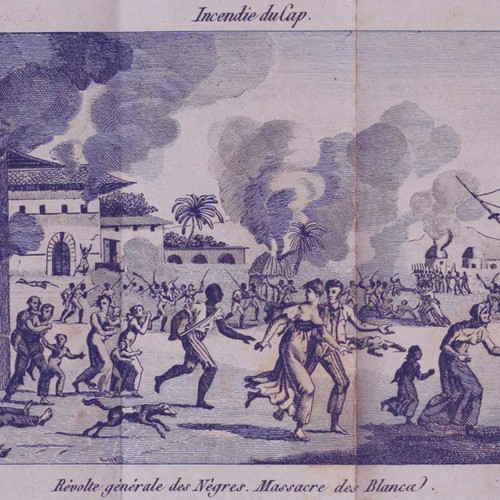
 English Learning for Curious Minds | A More Interesting Way To Learn English
English Learning for Curious Minds | A More Interesting Way To Learn English #494 | The Haitian Revolution
5 snips
Aug 1, 2024 Explore the harrowing yet inspiring tale of the Haitian Revolution, where enslaved individuals fought fiercely for their freedom. Discover the life of Toussaint L’Ouverture, a pivotal military leader emerging from brutal conditions. The podcast dives into the societal structures of Saint-Domingue and the initial uprisings sparked by ideals from the French Revolution. Learn about the intense diplomatic struggles, betrayals, and eventual victory that led to Haiti becoming the world's first free black-led nation. It's a gripping look at resilience and human rights!
AI Snips
Chapters
Transcript
Episode notes
Saint-Domingue's Brutal Plantation Economy
- Saint-Domingue became a sugar and plantation powerhouse under French rule, producing vast wealth for Europe.
- The colony relied on brutal slave labor with extremely high death rates and little care for enslaved people.
A Fractured Colonial Society
- Society in Saint-Domingue had four distinct groups with conflicting interests: grands blancs, petit blancs, free people of colour, and enslaved Africans.
- These social divisions, plus extreme population imbalance, made the colony a volatile 'powder keg'.
French Revolutionary Ideas Ignite Hope
- The French Revolution's message of 'men are born and remain free and equal' reached Saint-Domingue and radically shifted expectations.
- Revolutionary ideals offered hope to the enslaved and threatened the colonial racial hierarchy.
